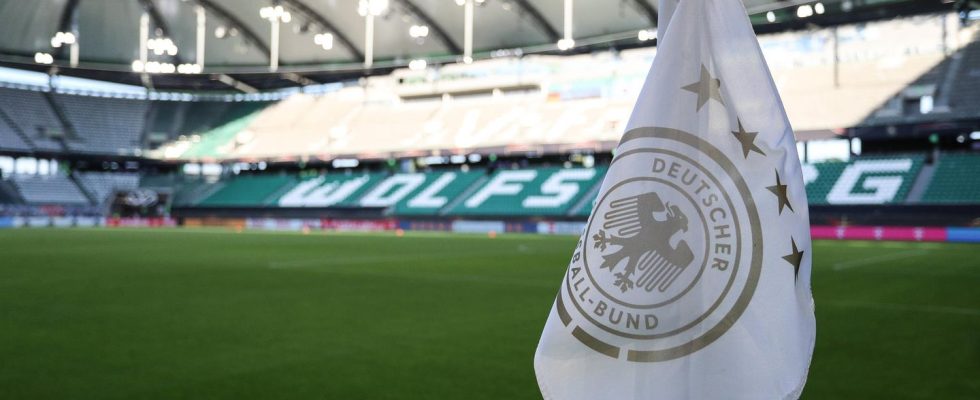Association in financial difficulties
Too clammy for Nagelsmann? Why the DFB is short of money
Expensive coach: The DFB would have to dig deep into its pockets for Julian Nagelsamann
© Federico Gambarini / DPA
The DFB has to pay attention to money when looking for a new coach. Julian Nagelsmann’s ideal solution could be too expensive. Where does the financial distress of the largest sports association in the world come from?
With Hansi Flick, the DFB has kicked out the highest-paid national coach in the world. The “Finance Football” portal estimated his annual salary at 6.5 million euros. This impressive sum was probably also the reason why the DFB didn’t pull the ripcord on Flick earlier. After all, his contract runs until the end of the European Championship in 2024. According to “Kicker”, Flick is still entitled to a salary of around 4.5 million euros.
Flick’s high salary can be explained by his good negotiating position in 2021. He previously earned seven million euros at FC Bayern and therefore had to be financially convinced of a move. If the DFB appears to favor Julian Nagelsmann for the coaching position, he will be faced with déjà vu. Despite being released in March, Nagelsmann is tied to FC Bayern until 2026. The DFB may have to pay a transfer fee to the record champions again. According to BILD reports, the people of Munich are refraining from doing so. However, Nagelsmann would probably only be able to be won for the association with a similar salary to Flick. All investments that the DFB can hardly afford at the moment.
If the success goes, the income goes
One of the main reasons for the financial hole in the DFB wallet is quite obvious. “If the national team is unsuccessful, the DFB is not doing well economically either. You can compare that with every Bundesliga club,” said DFB treasurer Stephan Grunwald in March. The DFB is economically dependent on the national team – and they were eliminated in the preliminary round of the last two World Cups. This means that the association has not received any bonuses amounting to millions. The DFB was paid nine million euros by FIFA for its preliminary round exit at the World Cup in Qatar. Finalist France, on the other hand, received 30 million euros and world champion Argentina even received 42 million euros.
The sporting failure not only affects the lack of tournament bonuses, but also the negotiations with sponsors, said treasurer Grunwald.
Another reason for the DFB financial crisis is the threat of tax refunds amounting to 46 million euros. Because: The DFB was deprived of its non-profit status for the years 2014 and 2015. Tax authorities accuse the association of tax evasion in connection with income from gang advertising. The association has therefore already recorded provisions in its balance sheet. The DFB had already been stripped of its non-profit status in 2006 because it wrongly reported a World Cup opening gala as a business expense. The DFB is currently taking legal action against all cases.
According to Hansi Flick
Klopp, Nagelsmann or Glasner: Who could be the new coach of the DFB team?
DFB pays 180 million for empty offices
The DFB campus in Frankfurt am Main, which opened in 2022, also swallowed millions. The costs for the new building rose from the originally planned 150 million to 180 million euros. The annual operating costs amount to 18 million euros. The project has had a particularly negative aftertaste due to reports that speak of deserted offices, broken windows and dilapidated fitness rooms.
After all: the DFB has recognized the signs of the times. “We have taken a consistent path of budget consolidation, in which we have responsibly and far-sightedly adjusted the existing budgets and further plans,” said Treasurer Grunwald in July. The structural deficit was reduced from 19.5 to 4.5 million euros per year The DFB has not specifically named the cost-cutting measures that led to this.
However, one source of income is known: The Amazon documentary “All or Nothing” about the national team in Qatar brought the association between five and six million euros.
Sources: “FAZ”, “World”, “t-online”, “Focus”, “Sky Sports”, “The mirror”, “Rheinische Post”, “tz”“Sports 1″

